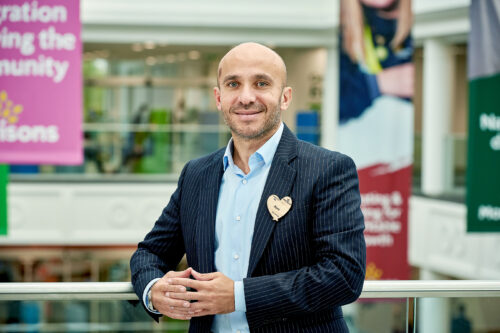As a working parent or guardian, it can sometimes be challenging to find the balance between our work and home life, especially if our children are struggling.
GroceryAid has partnered with Relate to provide funded counselling and support for children aged 5 – 10 and young people aged 11 – 18. Counselling lets your child talk about how they feel in a non-judgemental and professional environment, separate from school and home life, and can help them get back to enjoying everyday activities they may be struggling with.
GroceryAid also offers free and confidential online counselling for young people aged 11–25 years, from their Partner Kooth. The online platform offers support through a variety of communication channels, including magazines, live webinars on relevant topics and peer-to-peer support through moderated online discussion boards.
There are also things you can do at home to create a supportive environment and nurture your child’s mental health:
Talk about topics which might be affecting them
Young people are increasingly exposed to news and media, often online, which may be impacting their mental health. While it may feel natural to try and shield our children from any negativity in the world, it’s important to create a safe space where your child can talk about things they may have seen or heard. Try to set time aside every week to talk about these things and discuss anything that may be worrying or confusing them.
Plan quality time and activities
Even in a busy schedule, try to make a habit of prioritising spending quality time together as a family. Consider what activities your child enjoys and values, such as playing games, reading books, or going to the park. Giving your child moments with undivided attention will help to strengthen your bond and contribute positively to their mental wellbeing.
Encourage exercise and hobbies
Try to encourage and support any of your child’s hobbies and interests, as they will play a crucial role in fostering creativity and boosting self-esteem. Whether it’s art, music, or sports, these activities provide an outlet for expression and help develop a sense of accomplishment.
It’s also widely known that exercising is good for mental health so, if you can, try to encourage your child to participate in sports or active hobbies, and try to get out for regular walks together.
Create a positive environment
Try to make your home a positive and uplifting environment. This could be achieved by celebrating achievements, no matter how small, or by leading by example and speaking kindly about ourselves rather than being self-critical. Practical exercises such as creating a positive affirmation journal or happiness jar with your child can also really help. To do this, every evening you write down two positive statements or good things that have happened that day. This encourages your child to balance out negative parts of their day and focus on the positives.
For more information on how GroceryAid can support your child or dependent, visit: groceryaid.org.uk/emotional/kooth




